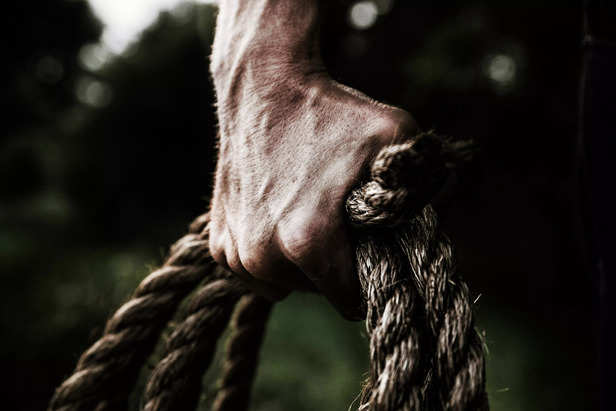Chanakya Niti: How to Say No Without Feeling Guilty and Set Strong Boundaries
Riya Kumari | Jan 28, 2025, 21:35 IST
You know that moment when someone asks for a favor, and you feel like you're standing in the spotlight on an emotional talent show? Cue the background music: "Will they sing the 'yes' anthem, or will they destroy everyone's hopes with a 'no' solo?" Yeah, me too. It's like life’s sneakiest pop quiz—except the only prize is more stress if you don’t ace it.
You know that knot in your stomach when someone asks you for a favor, and you know—you know—you can’t (or don’t want to) do it? But instead of saying no, you mutter a half-hearted “sure,” and immediately regret signing up for a personal nightmare? Yeah, I’ve been there too. Somehow, saying “no” feels harder than solving world peace. It’s the guilt, right? That nagging voice in your head that says you’re being selfish or rude. But here’s the thing: saying no isn’t selfish—it’s self-respect. And believe it or not, Chanakya, the ancient Indian philosopher and strategist, knew this centuries ago.
1. Know Your Limits

Meaning: You can’t pour from an empty cup.
Look, saying yes to everything might make you feel like a saint, but it also makes you feel like a stressed-out, sleep-deprived, overbooked wreck. And guess what? People will still ask for more. Chanakya taught that a wise person knows their strengths and limitations. Translation? Stop overcommitting. You are not a superhero, and no, you’re not responsible for fixing everyone’s problems. Saying yes to everything might win you temporary approval, but it’s a one-way ticket to burnout. Be honest about what you can handle. The next time someone asks for your time, pause and assess: Do I have the capacity for this? If the answer is no, say it. Try this:
“I’d love to help, but I’ve got too much on my plate right now.”
Polite, clear, and guilt-free.
2. Avoid False Promises

Meaning: Don’t say yes just to avoid awkwardness.
It’s better to decline outright than to overpromise and under-deliver. How many times have you agreed to something just because it felt easier than saying no? But then the deadline or event creeps up, and suddenly you’re scrambling to deliver on a promise you never should’ve made. Chanakya would call this a recipe for unnecessary stress. Instead of overpromising and under-delivering, be upfront from the start. It’s better to disappoint someone in the moment than to let them down later. Say this:
“I don’t think I can give this the attention it deserves. I’m sorry, but I have to pass.”
Honesty is always better than flaking.
3. Choose Your Company Wisely

Meaning: Some people aren’t worth your energy.
You know those people who treat you like their personal problem solver? Yeah, Chanakya says to dodge them like they’re the last slice of stale pizza at a party. His philosophy is all about surrounding yourself with folks who uplift you, not drain your will to live. Chanakya believed in surrounding yourself with people who bring out the best in you—not those who drain you with constant demands. If someone consistently takes advantage of your kindness or guilt-trips you into helping, it’s time to draw a boundary. It’s not cruel to prioritize your well-being. In fact, it’s necessary. Practice this:
“I can’t take this on, but I hope you find the support you need.”
Protecting your time and energy is an act of self-care.
4. Master the Art of Diplomacy

Meaning: A kind no is still a no.
Saying no doesn’t have to feel harsh or confrontational. Chanakya emphasized the importance of communication and tact. You can decline gracefully, and most people will respect your honesty. For example, when you’re asked to stay late at work for the fifth time this week, say:
“I’m really sorry, but I have other commitments tonight. Let’s figure out another way to get this done.”
Or when a friend expects you to drop everything for them, gently remind them:
“I care about you, but I also need to take care of myself right now.”
Notice the balance: empathy and boundaries can coexist.
5. Stand Firm in Your Decisions

Meaning: Don’t waver once you’ve said no.
The thing about guilt is that it’s like that ex who keeps texting you “just to check in.” You’ve got to block it. Once you’ve said no, don’t waver. If you start with “I can’t,” but five minutes later you’re texting “Actually, maybe I could…,” you’re playing yourself. The hardest part of saying no is dealing with the guilt afterward. But here’s the truth: your time and energy are finite. If you’ve made the decision to decline, don’t second-guess yourself. Chanakya reminds us that sticking to our values is more important than pleasing everyone.
If someone tries to guilt you into changing your mind, stand your ground with calm confidence. Say:
“I understand this is important to you, but my answer won’t change. I hope you can respect that.”
Being firm is a sign of strength, not selfishness.
1. Know Your Limits

Empty glass
Meaning: You can’t pour from an empty cup.
Look, saying yes to everything might make you feel like a saint, but it also makes you feel like a stressed-out, sleep-deprived, overbooked wreck. And guess what? People will still ask for more. Chanakya taught that a wise person knows their strengths and limitations. Translation? Stop overcommitting. You are not a superhero, and no, you’re not responsible for fixing everyone’s problems. Saying yes to everything might win you temporary approval, but it’s a one-way ticket to burnout. Be honest about what you can handle. The next time someone asks for your time, pause and assess: Do I have the capacity for this? If the answer is no, say it. Try this:
“I’d love to help, but I’ve got too much on my plate right now.”
Polite, clear, and guilt-free.
2. Avoid False Promises

Hands
Meaning: Don’t say yes just to avoid awkwardness.
It’s better to decline outright than to overpromise and under-deliver. How many times have you agreed to something just because it felt easier than saying no? But then the deadline or event creeps up, and suddenly you’re scrambling to deliver on a promise you never should’ve made. Chanakya would call this a recipe for unnecessary stress. Instead of overpromising and under-delivering, be upfront from the start. It’s better to disappoint someone in the moment than to let them down later. Say this:
“I don’t think I can give this the attention it deserves. I’m sorry, but I have to pass.”
Honesty is always better than flaking.
3. Choose Your Company Wisely

Head up
Meaning: Some people aren’t worth your energy.
You know those people who treat you like their personal problem solver? Yeah, Chanakya says to dodge them like they’re the last slice of stale pizza at a party. His philosophy is all about surrounding yourself with folks who uplift you, not drain your will to live. Chanakya believed in surrounding yourself with people who bring out the best in you—not those who drain you with constant demands. If someone consistently takes advantage of your kindness or guilt-trips you into helping, it’s time to draw a boundary. It’s not cruel to prioritize your well-being. In fact, it’s necessary. Practice this:
“I can’t take this on, but I hope you find the support you need.”
Protecting your time and energy is an act of self-care.
4. Master the Art of Diplomacy

No
Meaning: A kind no is still a no.
Saying no doesn’t have to feel harsh or confrontational. Chanakya emphasized the importance of communication and tact. You can decline gracefully, and most people will respect your honesty. For example, when you’re asked to stay late at work for the fifth time this week, say:
“I’m really sorry, but I have other commitments tonight. Let’s figure out another way to get this done.”
Or when a friend expects you to drop everything for them, gently remind them:
“I care about you, but I also need to take care of myself right now.”
Notice the balance: empathy and boundaries can coexist.
5. Stand Firm in Your Decisions

Rope
Meaning: Don’t waver once you’ve said no.
The thing about guilt is that it’s like that ex who keeps texting you “just to check in.” You’ve got to block it. Once you’ve said no, don’t waver. If you start with “I can’t,” but five minutes later you’re texting “Actually, maybe I could…,” you’re playing yourself. The hardest part of saying no is dealing with the guilt afterward. But here’s the truth: your time and energy are finite. If you’ve made the decision to decline, don’t second-guess yourself. Chanakya reminds us that sticking to our values is more important than pleasing everyone.
If someone tries to guilt you into changing your mind, stand your ground with calm confidence. Say:
“I understand this is important to you, but my answer won’t change. I hope you can respect that.”
Being firm is a sign of strength, not selfishness.
